- Home
- Tad Williams
Brothers of the Wind Page 4
Brothers of the Wind Read online
Page 4
“You talk to no purpose, brother,” I heard Ineluki say, curling his lip. “I came out only to see this creature for myself. If it is as small as I guess it to be, I thought I might also dispatch it and end the threat to the mortals who live here. Surely even our father could not object to such kind stewardship.” He smiled, but that flash of white put me in mind of a skin of bright ice hiding the black, cold waters of a winter lake, and I wondered at the depths of Ineluki’s unhappiness and anger. Still, his moods changed swiftly, and I hoped a more sensible one would overtake him soon.
“You have been foolish,” Hakatri told his brother in a low voice. “You have caused much worry for many.”
In the meanwhile, the rest of my master’s hunting party were waiting out the brothers’ argument. We learned that the company had been halted here at the entrance to the valley since the middle of the day, Hakatri wanting to take Ineluki back but his brother steadfastly refusing.
“I do not mean to interfere in your dispute, great lords,” said the mortal prince Cormach, “but as you know, this is the entrance to Serpent’s Vale, where the worm has his lair. He is not often seen in daylight, but he emerges by night to take sheep and cattle and even people from the meadows all up and down these hills. It does not seem a good place to continue your argument, especially if you do not think it will be hastily resolved.”
It was plain to see that the Hernsmen, as the mortals called themselves, did not like the place, and I confess I felt more than a little uneasy myself. The hills were high and rocky on either side of the gorge, and with the sun all but set and darkness spreading along the grassy slopes, it was a gloomy spot. I heard no birds at all, only a few crickets singing in the long grass to mark the coming of night. And I was not the only one to feel this apprehension: several of my master’s own folk watched the mouth of the valley with troubled faces.
“We will not stay,” Hakatri told the mortal prince. “We are returning to Asu’a—all of us. As it is, our father will be uncommonly angry, and even our mother will find herself out of patience, but we may yet repair what you have damaged by your willfulness.”
“Willfulness?” Ineluki closed his eyes as though his patience was being unfairly tested. “These mortals came to Asu’a with tales of a deadly dragon, so I rode out to see it for myself. Now we stand on the creature’s very doorstep and you would turn back? What good is that to these people?” He gestured toward Cormach and his bearded followers. “What lesson will that teach them? That the House of Year-Dancing is empty of brave hearts?”
“We did not come to be taught any lessons, my lord,” said Cormach, and now he seemed angry with Ineluki as well. “We came to ask for your help.”
“There—do you see?” said Ineluki. “All that is wanted is a little bravery, brother.”
“This has nothing to do with bravery and everything to do with the will of the Protector and the Sa’onsera,” my master replied. “You left before our parents had made their decision, like a child bored with his lessons who runs out to play in the sun.”
For a moment it seemed that Ineluki’s anger would overmaster him. He stared at his brother with such fury that I thought he might simply ride away again. Then his face changed once more, his fury either cooled or hidden. “Your argument comes too late, brother,” he said in a gentler tone. “Perhaps I was heedless. Perhaps I was at fault—the Garden knows, sometimes I lose patience with our parents’ excessive caution. But we are here now! At the very least, we must track the beast and learn something of its true size and nature so that we may plan how to deal with this unwanted creature.”
The argument between the brothers continued, though they took themselves a little way apart from the rest of us. Cormach and his mortals finally built a fire—it was much larger than the one the Zida’ya and I had made the night before—and we all waited for my master and Ineluki to resolve themselves on what we should do next.
It was well past middle-night when Hakatri came to the fire. “In the morning, we shall make our way into the valley a short way to learn what we can of the worm the mortals say abides there,” he told me quietly. “I will ride Frostmane in case we meet trouble.”
So my master’s younger brother had won the argument. I was not surprised—Ineluki, as his father often said, had the stubbornness of a badger defending its burrow. I was sorry to hear we would be traveling into that grim valley, because I did not like what I had already seen of the place. I spent much of the remaining night making certain my master’s spearhead and sword blade were sharp as an icy wind.
* * *
• • •
If I had disliked the entrance to the gorge, I cared even less for the valley itself. Lord Ineluki and my master rode first, with Yohe and myself just behind them, followed by the rest of the lords-errant and their squires, and then Prince Cormach with his own men. We needed no guide, since the valley was narrow and the walls were high. The mouth of the gorge was strewn with broken or felled trees. I saw my master and his brother exchange a look, with Ineluki unable to hold his brother’s stern gaze for long.
The bottom of the valley was crisscrossed with coursing rivulets, so that the ground was everywhere a swamp, with bits of trees and rocks standing out here and there to make the going even more treacherous. Perhaps because of the steepness of the valley’s sides, the cloudy sky seemed to hang closely overhead, hemming us in from a third direction. It felt as if we were prisoners being led to some place of execution.
For all the water and mud and new-sprouted grass, the valley seemed curiously lifeless. The birds I had not heard the evening before were still absent today, and the crickets had fallen silent. The only noises other than those we made were the occasional jeers of crows or the hissing of mountain cicadas, oblivious to everything except their own short time in the sun.
Though the sun kept rising through the cloudy sky, I never felt warm. The small streams that ran through the valley had flowed together in spots to make great brackish ponds, with the branches of half-submerged trees reaching up through the murky water like the arms of drowning swimmers. The steep hillsides were covered with thick growth, so that what little sound we made did not echo back to us. I could not help feeling like one who trespasses in another’s house by night, hoping only to achieve whatever they came to do and escape before the house’s owner awakes.
Suddenly Ineluki raised a hand. His brother, Yohe, and I all reined up and waited silently. Ineluki extended a finger, pointing to a place some distance ahead of us through the muddy, swampy vale, where two large alders grew on either side of the track of higher ground we were following. At first I could make nothing of his gesture—what was before us looked no different to me than what was behind—but now my master also saw what his brother had seen, and I could tell by his face not to speak. Hakatri climbed down from Frostmane, and I took the charger’s reins from him. Ineluki dismounted too, giving Bronze to Yohe.
“We should have brought hounds,” Ineluki whispered to his brother.
“We are not our cold Hikeda’ya kin,” my master said quietly. “We do not send animals or slaves where we fear to go ourselves.”
As I watched, the two of them made their way forward, crouching low to the ground. Neither one had drawn a weapon, which puzzled me, but as I swung down from my saddle so I could better keep both of my master’s horses calm, I finally saw what Ineluki had spotted. What I had thought only another large tree root or fallen log—a dark, cylindrical shape lying across the earthen track ahead of us—suddenly moved, and I realized it was no root at all but a tail.
The tail was of good size, that was beyond doubt. It certainly belonged to a drake of some kind, or an unusually large swamp-serpent—but from where I sat it appeared nowhere near as massive as I had feared from the stories the mortals told, and though my heart was beating very fast I felt a little relief. Without being asked, I untied my master’s boar-spear so that it would be ready for him.
I followed, still holding Frostmane’s reins, leaving Seafoam waiting, but my master and Ineluki moved more swiftly. They were now some dozen paces ahead of me, creeping slowly but steadily toward the long, dark thing that lay motionless across the track.
As I stood with Frostmane’s reins in one hand and the heavy hunting spear in the other, the moment seemed to hang in the air and burn away in silence like a handful of lit straw. The black tail slid forward until it was almost out of sight: my master and his brother stayed close to it, trying to catch a glimpse of its owner. The rest of the company was strung out behind us along the high track. Then a great rattling sound passed all the way down the row of trees beside us and I heard a sudden shout behind me—a shout of terror. I turned in time to see a dark shape plunge out of the leaning trees and knock one of the Zida’ya hunters to the ground, along with his shrieking horse. The attack happened far faster than I can describe it, and it took me a moment to realize that what had struck the rider down was not just a large beast, a bear or angry boar, but a monstrous head on the end of a monstrously long neck. The rest of the beast still lay hidden behind the tangled trees that lined the path.
My master Hakatri and the others had also turned back at that single, terrible cry. The crashing, rattling sound grew louder as more of the dragon’s serpentine body emerged onto the higher ground of the trackway behind us. The tail had not been overly large, but that was because we had seen only its very tip. The rest of the worm had been lying in the swampy wrack, stretched parallel to the high ground and hidden by the thick brush and trees. We had passed right by its watching head.
The horses reared in terror as the immense black dragon slithered toward them, then they scattered before it like mice, leaping away in all directions. Some of the startled horses immediately charged into the brackish water and foundered; others reared in panic and flung their riders out of their saddles. The worm’s front legs were short and bowed like those of a southern cockindrill, but it moved with surprising speed. The head on the long neck writhed from side to side, striking at everything it could reach like a furious adder. I only saw it in full for a moment, but that first sight of the monster will never leave my memory. The Blackworm had an armored head with a blunt, jagged beak like a turtle’s, though no turtle was ever so huge. Its eyes, what little I could see of them as the head swept by, were golden rings at the center of staring black orbs, and its lusterless black armor ran in parallel rings down the length of its body so that it rippled like an earthworm as it moved.
The moment of stillness had given way to a din I hope never to hear again, shrieks of pain from horses and riders alike, the crash and splinter of falling trees, and the dull, hideous crunch of the monster’s heavy jaws as it bit through armor, flesh, and bone.
From the corner of my eye I saw my master and heard him shout, “My spear! Pamon, my spear!” Although I scarcely knew what I was doing, I pitched it toward him, but I was shouting, “No, my lord! The beast is too big!” even as I threw it. Hakatri did not listen to my warning, but instead ran past me with the spear clutched in both hands and plunged it into the cold-drake’s side. The spearhead sank into the contorting black body, punching in all the way up to the spear’s bronze-bound lugs, but the creature hardly seemed to notice; a moment later a sideways contortion of its long body sent Hakatri flying into the trees.
“Master!” I cried, forgetting even my overwhelming terror of the worm in my fear for him. I dropped Frostmane’s reins and struggled through the broken trees and floating logs, quickly sinking into muddy water up to my hips as I left the track. Behind me rose the cries of the hunting party, but the worm itself remained oddly silent. I took one look back and saw the great, blunt head rise high into the air, shaking into little pieces someone who had once had a name and a history, showering the track with a drizzle of blood, then I turned away in staggering horror, still searching for my master.
I found Hakatri at last, half sunk in a backwater pool, tangled in broken branches. His face was out of the water and he was breathing, but though I shook him I could not summon any movement or sign of life. The noises from behind me were terrible, the ragged screams of the hunting party and the noise of splintering spear hafts and shattering tree trunks combined into a skull-scraping din beyond my ability to describe. I got my arms around Hakatri and pulled him onto a higher bit of land, then slapped and tugged at him in a panicked effort to bring him back to his senses. At last his eyes opened.
“Get up!” I cried. “Get up, Master! The thing will kill us all!”
“My spear,” he said, trying to fix his eyes on me. “I have lost it. Where is my spear . . . ?”
No spear was going to stop that dreadful thing—a score of spears would not have availed—but I did not waste time arguing. Instead, I dragged Hakatri toward higher ground as quickly as I could, though it seemed that every branch and root in our path caught at him and pulled against me. One of the horses came stumbling past me toward the reeds and I grabbed at its harness. It was Frostmane, his rolling eyes showing white at the edges, though I saw no wounds on him. I called for help, but could hear no other voices now, only the dragon’s thrashing movements, so I had to heave my master up into the saddle by myself, which was almost beyond my strength. Hakatri did what he could to help me, and when he was at last mounted he reached down a hand and lifted me up behind him.
“Where is Ineluki?” he said, his words slurred as though he was still dazed. “Where is my brother?”
“I do not know, my lord. All have scattered before the worm’s attack.” The cracking and snapping of tree-trunks grew louder and suddenly the war-horse leaped forward beneath us, driven by terror of the approaching beast. In a moment Frostmane had found firm ground, and then no amount of pulling on the reins would slow the maddened horse. Even Hakatri could do no more than hang on, and I held on to him, as Frostmane sprang from hummock to hummock through the swampy valley until he had doubled back around the place where the worm had attacked us. Some of the others were already there, racing up the track toward the mouth of the valley, as heedless of our fate as we had been unknowing of theirs. Ineluki was one of them, covered in mud and bloody scratches but otherwise whole, and I thought I saw Seafoam too, her belly strap broken, dragging her saddle along the ground. My master did not even hold the reins tightly but let Frostmane follow the other survivors out of Serpent’s Vale.
The remains of our company stumbled out of the valley and onto the broad Silver Way, mortals and immortals mingled together, equals for once in the shock of what had happened. My master made a swift tally of the wounded and the dead.
“Where is Tariki?” Hakatri’s voice was ragged at the edges. “Has anyone seen him?”
“He and several others are still missing,” one of the other Zida’ya announced.
“I pray he lives, but many are dead.” Ineluki’s eyes were dry but his face was slack and haunted. “My faithful Yohe is one of them. My beloved friend and companion has been snatched from this life. And we cannot even bury her.” Ineluki turned to his brother. I have never seen one of the Zida’ya look so lost. “I watched her die under the cold-drake’s claws. How can it be true? She has been with me since she was a child. How did this happen to her?” He laid both hands over his breast as though to keep his heart pent inside him.
Yohe’s death struck me like a blow, too. She and I had not been anything like friends, but I had known her all my life and had never imagined she might not survive the day. In less than an hour, the whole world seemed to have tipped and fallen over.
“I also mourn Yohe,” Hakatri said. “And Lilumo the Poet is dead as well, his songs all ended. Tariki and several more that I love are missing. I want to scream at the sky, brother, believe me. But we must save our strength to care for the living. Many have been badly hurt.”
“I see Lord Tariki!” one of the armigers cried. “He is leading a horse with two bodies across the saddle.”
“P
raise the Grove!” said Hakatri. “Help him, you who are closest. Help those he brings, if they are not beyond it.”
Ineluki seemed fixed on something quite different. “Where is the mortal prince?” he suddenly demanded, looking around, his eyes wild with grief. “Where is the one called Cormach?”
“I am here, Lord Ineluki.” Cormach was kneeling over one of his Hernsmen; when he sat up, he had blood on both hands.
Ineluki walked toward the mortal prince, and even in the midst of so much mourning, those around watched in fear. Even my master Hakatri, though he could barely stand, lurched after his brother, ready to intervene. As Cormach watched uneasily, Ineluki stopped before him and said, “Give me your hand.”
Mystified, Cormach reached out. Ineluki dropped to one knee and set the mortal prince’s knuckles against his own forehead as though to pledge fealty—something I doubt had ever been seen before between Zida’ya and mortals. Cormach’s hand left a daub of blood on Ineluki’s brow. “I was a fool, mortal,” said my master’s brother, “and both mortals and Zida’ya have died because of it. I was wrong to mock you. There can be no doubt that creature truly is Hidohebhi, one of the Great Worms.”
“I take no pride in being right, my lord, especially when so many have fallen, your folk and mine.” Cormach seemed confused by Ineluki’s unexpected gesture. “As I said, I had seen the beast, and before that followed its tracks for many days.”
Ineluki released the mortal’s hand. “Still, if I had not been so stubbornly, cursedly certain of what I did not know, my beloved Yohe might still be with me. I will live with that shame until my last day alive.” I had never seen his expression so devastated, so confused and hopeless. It verged, I thought, on real madness.

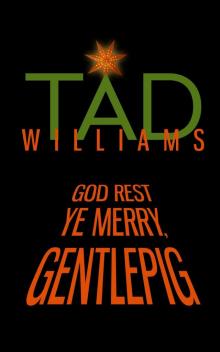 God Rest Ye Merry, Gentlepig
God Rest Ye Merry, Gentlepig Tailchaser's Song
Tailchaser's Song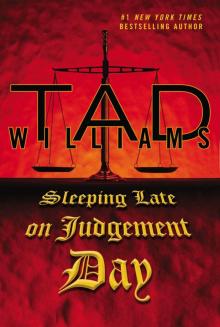 Sleeping Late on Judgement Day
Sleeping Late on Judgement Day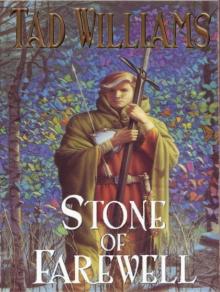 Stone of Farewell
Stone of Farewell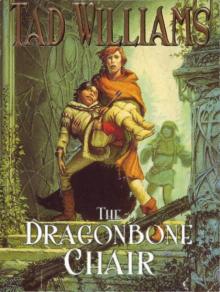 The Dragonbone Chair
The Dragonbone Chair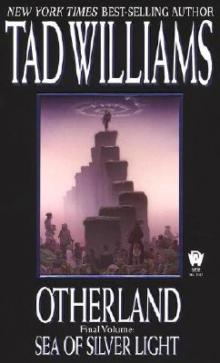 Sea of Silver Light
Sea of Silver Light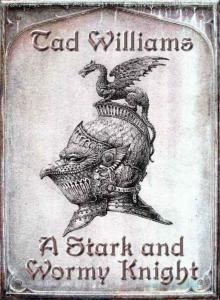 A Stark and Wormy Knight
A Stark and Wormy Knight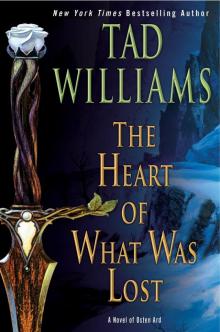 The Heart of What Was Lost
The Heart of What Was Lost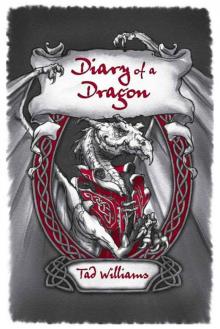 Diary of a Dragon
Diary of a Dragon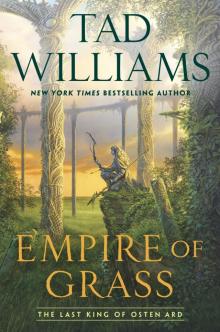 Last King of Osten Ard 02 - Empire of Grass
Last King of Osten Ard 02 - Empire of Grass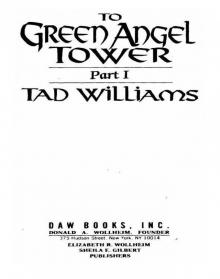 To Green Angel Tower, Volume 1
To Green Angel Tower, Volume 1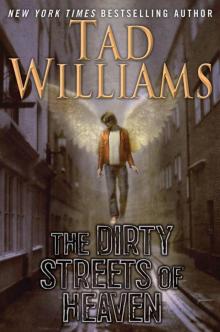 The Dirty Streets of Heaven
The Dirty Streets of Heaven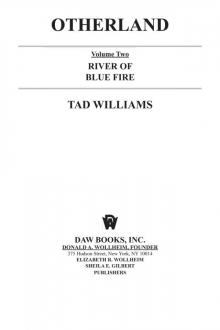 River of Blue Fire
River of Blue Fire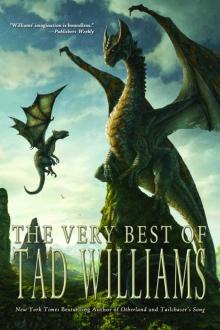 The Very Best of Tad Williams
The Very Best of Tad Williams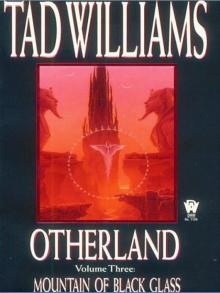 Mountain of Black Glass
Mountain of Black Glass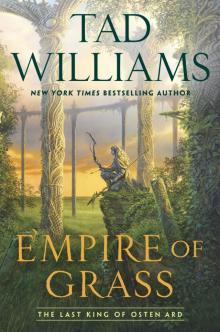 Empire of Grass
Empire of Grass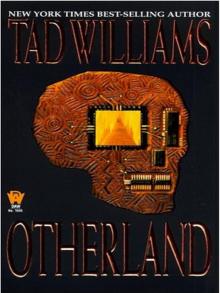 City of Golden Shadow
City of Golden Shadow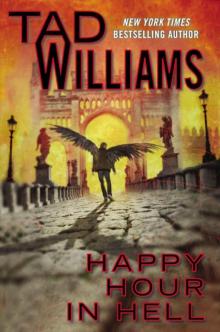 Happy Hour in Hell
Happy Hour in Hell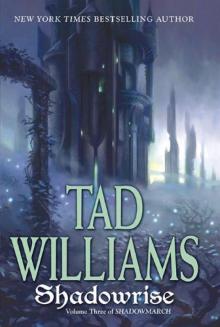 Shadowrise
Shadowrise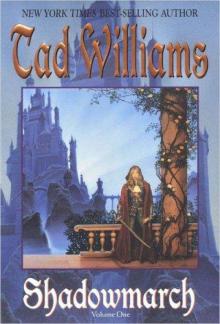 Shadowmarch
Shadowmarch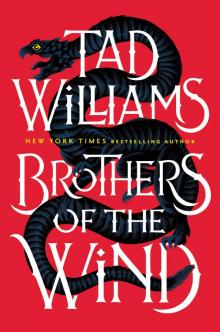 Brothers of the Wind
Brothers of the Wind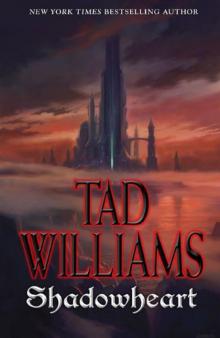 Shadowheart
Shadowheart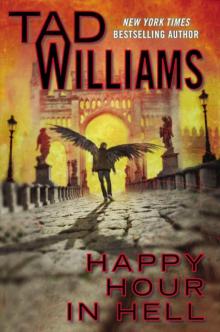 Bobby Dollar 02 - Happy Hour In Hell
Bobby Dollar 02 - Happy Hour In Hell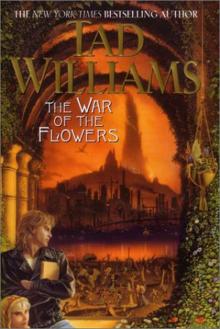 The War of the Flowers
The War of the Flowers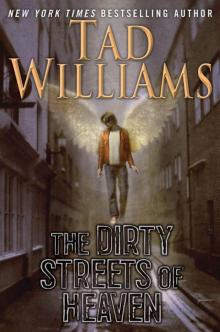 The Dirty Streets of Heaven bd-1
The Dirty Streets of Heaven bd-1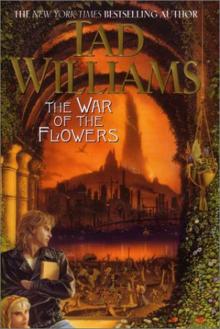 Tad Williams - The War of the Flowers (retail) (pdf)
Tad Williams - The War of the Flowers (retail) (pdf)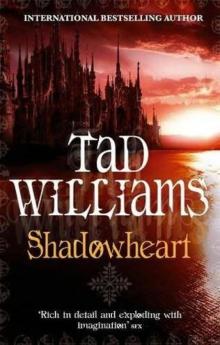 Shadowheart s-4
Shadowheart s-4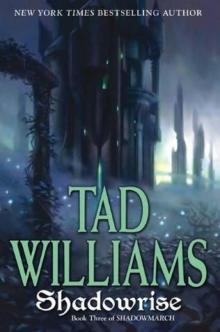 Shadowrise s-3
Shadowrise s-3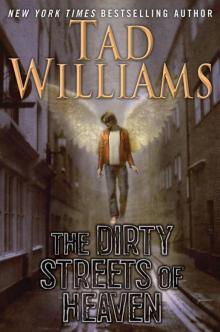 The Dirty Streets of Heaven: Volume One of Bobby Dollar
The Dirty Streets of Heaven: Volume One of Bobby Dollar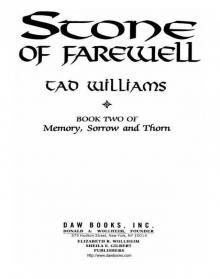 The Stone of Farewell
The Stone of Farewell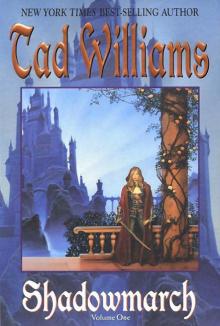 (Shadowmarch #1) Shadowmarch
(Shadowmarch #1) Shadowmarch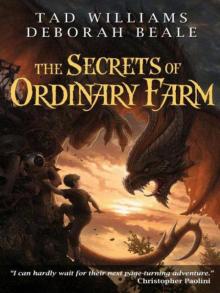 The Secrets of Ordinary Farm of-2
The Secrets of Ordinary Farm of-2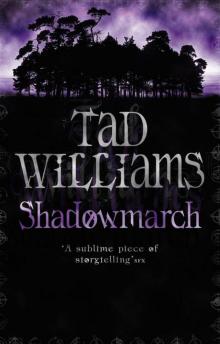 Shadowmarch s-1
Shadowmarch s-1![Bobby Dollar [04] God Rest Ye Merry, Gentlepig Read online](http://i1.bookreadfree.com/i1/04/06/bobby_dollar_04_god_rest_ye_merry_gentlepig_preview.jpg) Bobby Dollar [04] God Rest Ye Merry, Gentlepig
Bobby Dollar [04] God Rest Ye Merry, Gentlepig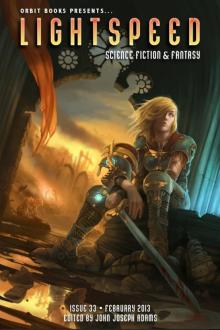 Lightspeed Issue 33
Lightspeed Issue 33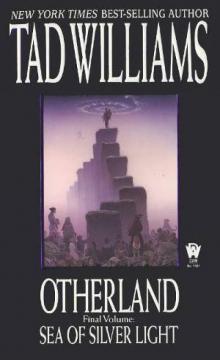 Sea of Silver Light o-4
Sea of Silver Light o-4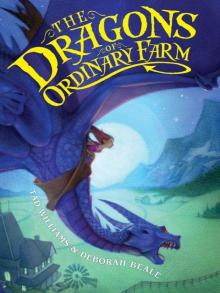 The Dragons of Ordinary Farm of-1
The Dragons of Ordinary Farm of-1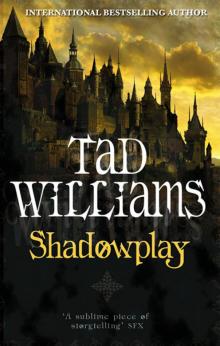 Shadowplay s-2
Shadowplay s-2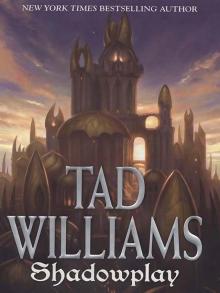 (Shadowmarch #2) Shadowplay
(Shadowmarch #2) Shadowplay